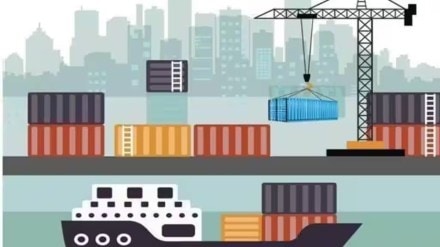Brazil is in active pursuit of enhancing its trade alliance with India, a move that could have profound implications for their economic partnership. The government is orchestrating an initiative to solicit support from MERCOSUR countries, a consortium of South American nations, in conducting a comprehensive feasibility study to evaluate the potential expansion of their existing MERCOSUR -India trade agreement, which was initially established in 2004.
Next week, the Brazilian Ministry of Development, Industry and Foreign Trade’s Foreign Trade Secretariat is set to launch a public consultation to seek recommendations from academia, civil society, and the private sector on expanding trade with India.
Despite the considerable scope for bolstered trade between these two significant economies, the existing trade interactions are still comparatively modest.
Last week, at the 6th Meeting of the Bilateral Trade Monitoring Mechanism between the two countries, at the MDIC, the representatives of both sides also talked about the long pending expansion of the India-MERCOSUR Trade Agreement.
According to local reports, Tatiana Prazeres, Secretary of Foreign Trade at MDIC, stated the need to forge new partnerships for business expansion and open up avenues for Brazilian products to access emerging markets.
India, as an extensive and fast growing economy, offers ample opportunities for Brazilian companies to explore and expand their business endeavors. Nevertheless, the trade relationship between MERCOSUR and India remained constrained, with a total trade volume of merely US$23.2 billion in 2022, constituting a minor fraction of MERCOSUR’s global trade activities.
Assessing the trade dynamics between Brazil and India reveals untapped potential for growth. In the past year, the trade volume amounted to US$15.2 billion. However, these numbers account for only two percent of Brazil’s exports and 3.3 percent of imports. This becomes more visible when considering that a substantial 80 percent of Brazil’s exports to India consist of just three products: soybean oil, petroleum, and other commodities.
The Brazilian Secretary of Foreign Trade Prazeres, according to reports advocates for an ambitious target of doubling bilateral trade in goods by 2030, along with an expansion of product offerings. Both Brazil and India are actively working towards elevating the combined trade in goods and services to an impressive US$50 billion in the foreseeable future.
Brazil is also focused on addressing trade barriers that hinder their exports to India. For instance, Brazilian chicken meat faces an exorbitant 100 percent tariff in the Indian market, while corn contends with an average tariff rate of 50 percent. Coffee, another potential export, is burdened with a 53 percent tariff. Moreover, Brazilian companies have encountered difficulties in exporting shoes to India due to the absence of recognition from Indian authorities, which has impeded the requisite certification process. And Brazilian officials stress the necessity of rectifying these limitations to trade.
